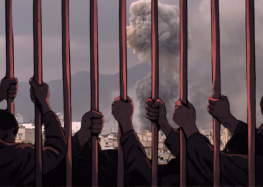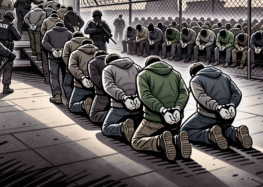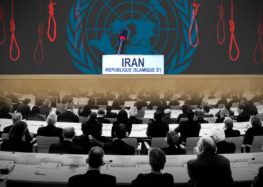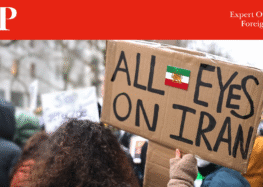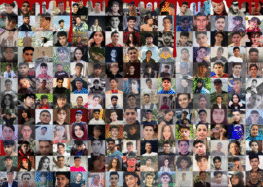9 Reformists Tell Rouhani to Respect Voters’ Demands to Release Political Prisoners
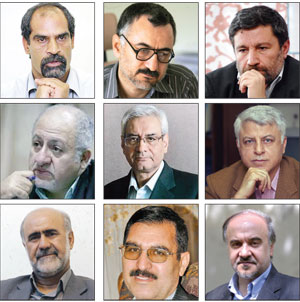
The letter, signed by Ebrahim Asgharzadeh, Elias Hazrati, Mohammad Java Haghshenas, Fayyaz Zahed, Reza Nowrooz Zadeh, Saeed Laylaz, Esmaeel Dousti, Massoud Soltanifar, and Nemat Ahmadi, reminds Rouhani of the role of public participation in the June elections which brought him to power, and that developments in Iran’s domestic scene have always impacted Iran’s image on the international scene.
In an open letter to Iranian President Hassan Rouhani, nine prominent reformist figures have asked for his immediate action to end “the misunderstandings left over from the 2009 elections.” The letter emphasizes the importance of forgiveness by both sides of the disputed election, the release of political prisoners, and ending the house arrest of Mir Hossein Mousavi, his wife Zahra Rahnavard, and Mehdi Karroubi.
The appearance of a public statement on the front pages of some Tehran newspapers is an unusual development in itself. Many conservative officials and clerics, including Head of Iran’s Judiciary, Sadegh Larijani, continue to refer to reformists and the dissident leaders as “Heads of Sedition,” attributing the 2009 post-election unrest to them, condemning them and demanding their prosecution.
Two weeks ago, Ahmad Jannati, the Tehran Friday Imam and Secretary of the conservative Guardian Council, said in his Friday sermon, “If it weren’t for ‘Islamic Compassion,’ Mousavi and Karroubi would have been executed by now.”
The letter, signed by Ebrahim Asgharzadeh, Elias Hazrati, Mohammad Java Haghshenas, Fayyaz Zahed, Reza Nowrooz Zadeh, Saeed Laylaz, Esmaeel Dousti, Massoud Soltanifar, and Nemat Ahmadi, reminds Rouhani of the role of public participation in the June elections which brought him to power, and that developments in Iran’s domestic scene have always impacted Iran’s image on the international scene. “If it weren’t for the Iranian nation’s choice, and their grand presence at the polls, and the widespread legitimacy they adorned on your presidency, the world powers would have never shown such a constructive cooperation with you and your government. Just as we witnessed in the previous government, all the efforts to write letters and to express interest in closeness with the effective powers faced with their cold and negative response. Therefore we must not forget what the source and inspiration of your legitimacy and that of your government’s is,” the reformists write.
“A nation voted for you who demanded changes in all decision making layers both domestic and international….The Iranian people hated being insulted simultaneously on both the domestic and international fronts. On the foreign scene, they demanded mutual respect and on the domestic front they demanded respect for citizenship rights,” the letter adds.
During a December 7 appearance at Tehran’s Shahid Beheshti University to commemorate the Student Day, where Rouhani gave a speech, students interrupted him several times to demand the release of Mir Hossein Mousavi and Mehdi Karroubi. Earlier during a speech on his campaign trail, after the audience chanted: “Political prisoners must be freed,” Rouhani said, “Why political prisoners? We must do something for all these prisoners to be released.”
Mir Hossein Mousavi and Mehdi Karroubi, two 2009 presidential candidates, and Zahra Rahnavard, Mousavi’s wife, have been under house arrest for more than one thousand days, since February 2011, after they applied for a permit to host a rally in support of the Arab Spring. In 2009, millions of Iranians took to the streets for peaceful protests against election fraud after incumbent president Mahmoud Ahmadinejad was announced as the winner, but met with a bloody crackdown from the Iranian authorities, leading to deaths, injuries, arrests, and imprisonment.
In a November 12 joint statement with Human Rights Watch, the International Campaign for Human Rights reminded the Iranian authorities that 1000 days have gone by since the house arrests of Mir Hossein Mousavi, Zahra Rahnavard, and Mehdi Karroubi went into effect, and during this time the three individuals have not been informed of their charges, and have not had access to due process. “The Iranian government should immediately and unconditionally release the opposition figures and 2009 presidential candidates Mehdi Karroubi and Mir Hossein Mousavi, and Mousavi’s wife, Zahra Rahnavard, an author and political activist. On November 12, 2013, the three will have spent 1,000 days under house arrest or detention without charge or trial. No governmental agency or body has expressly accepted responsibility for the opposition figures’ detention or brought any charges against them,” the statement said.

